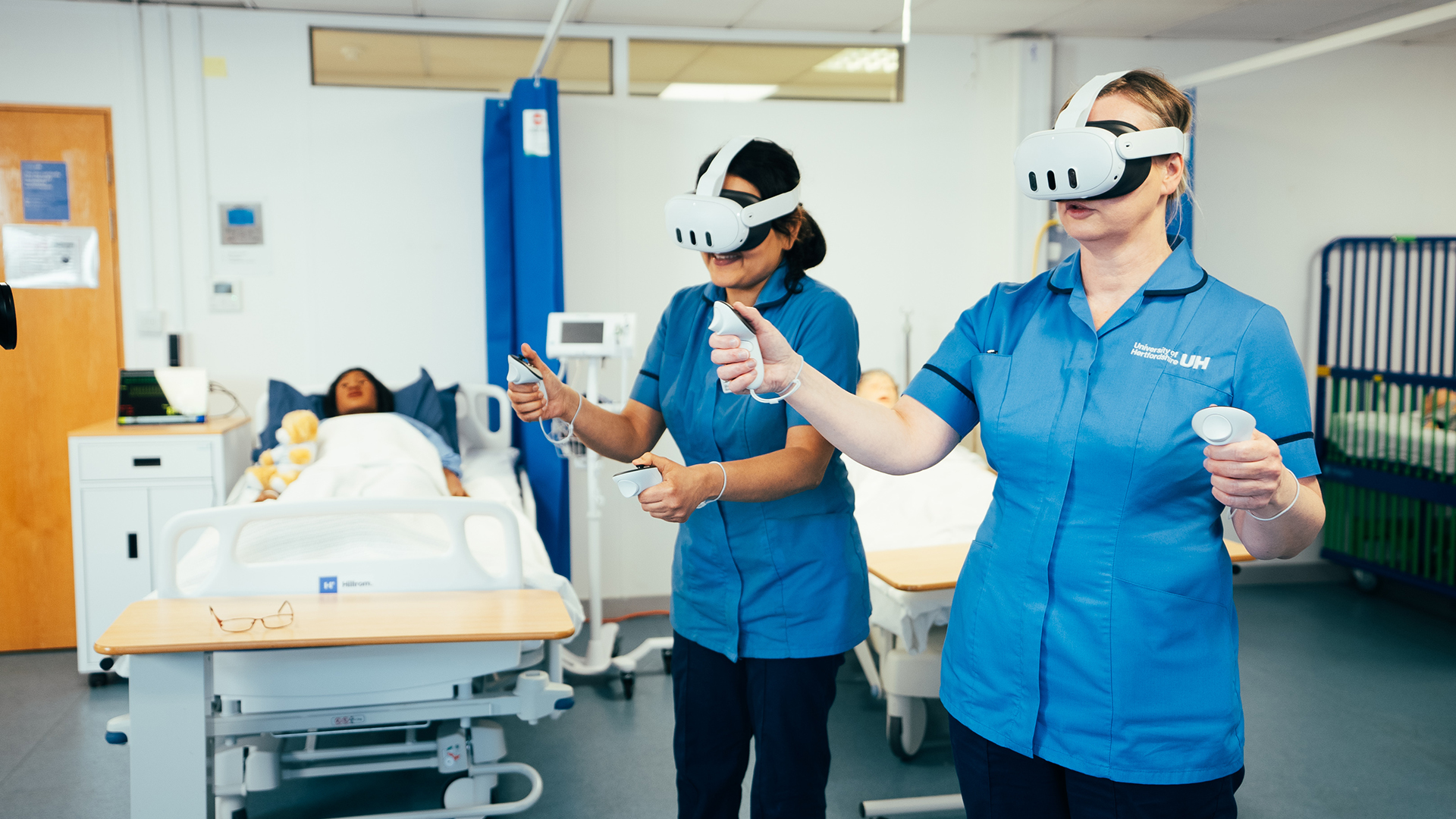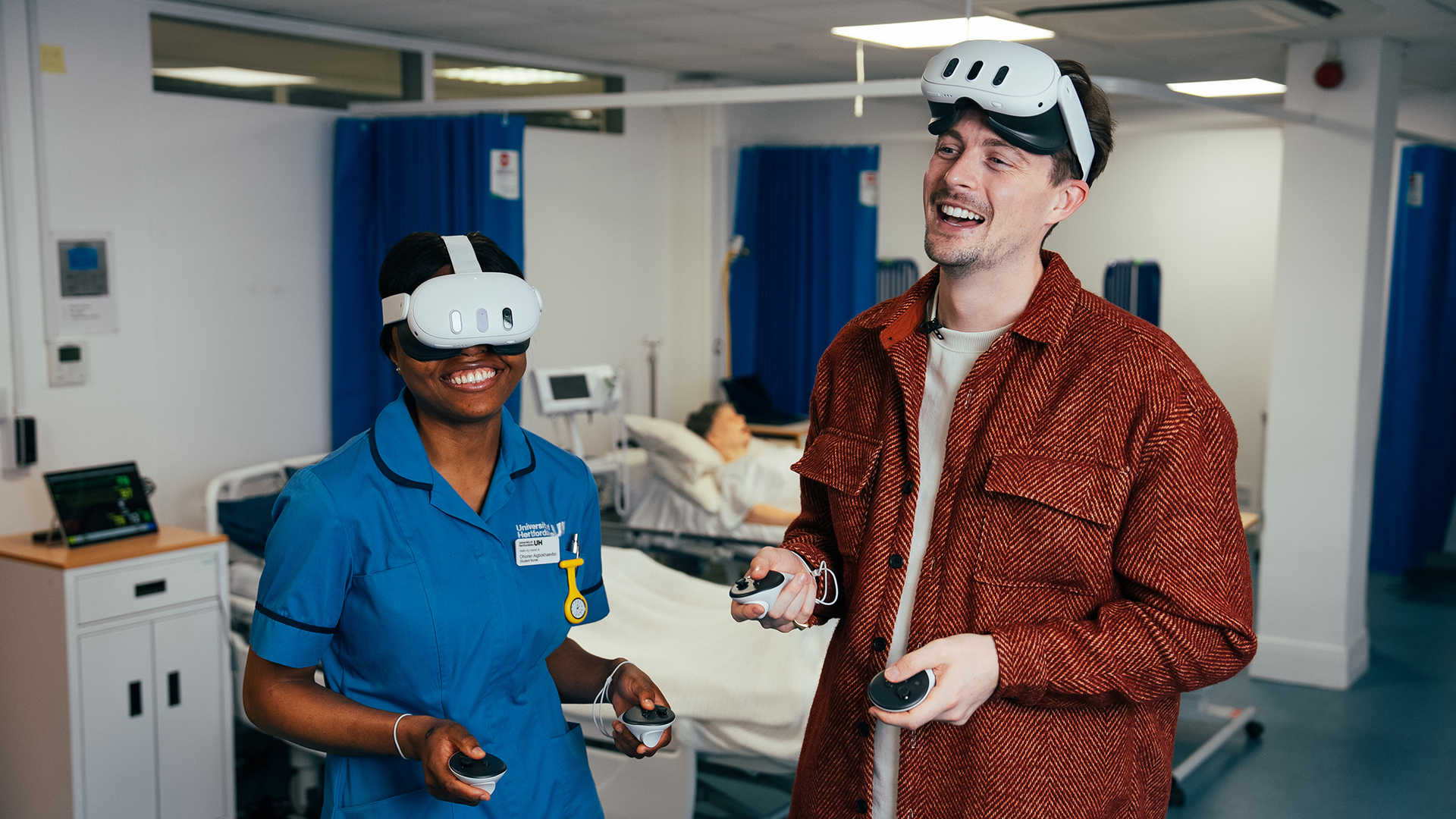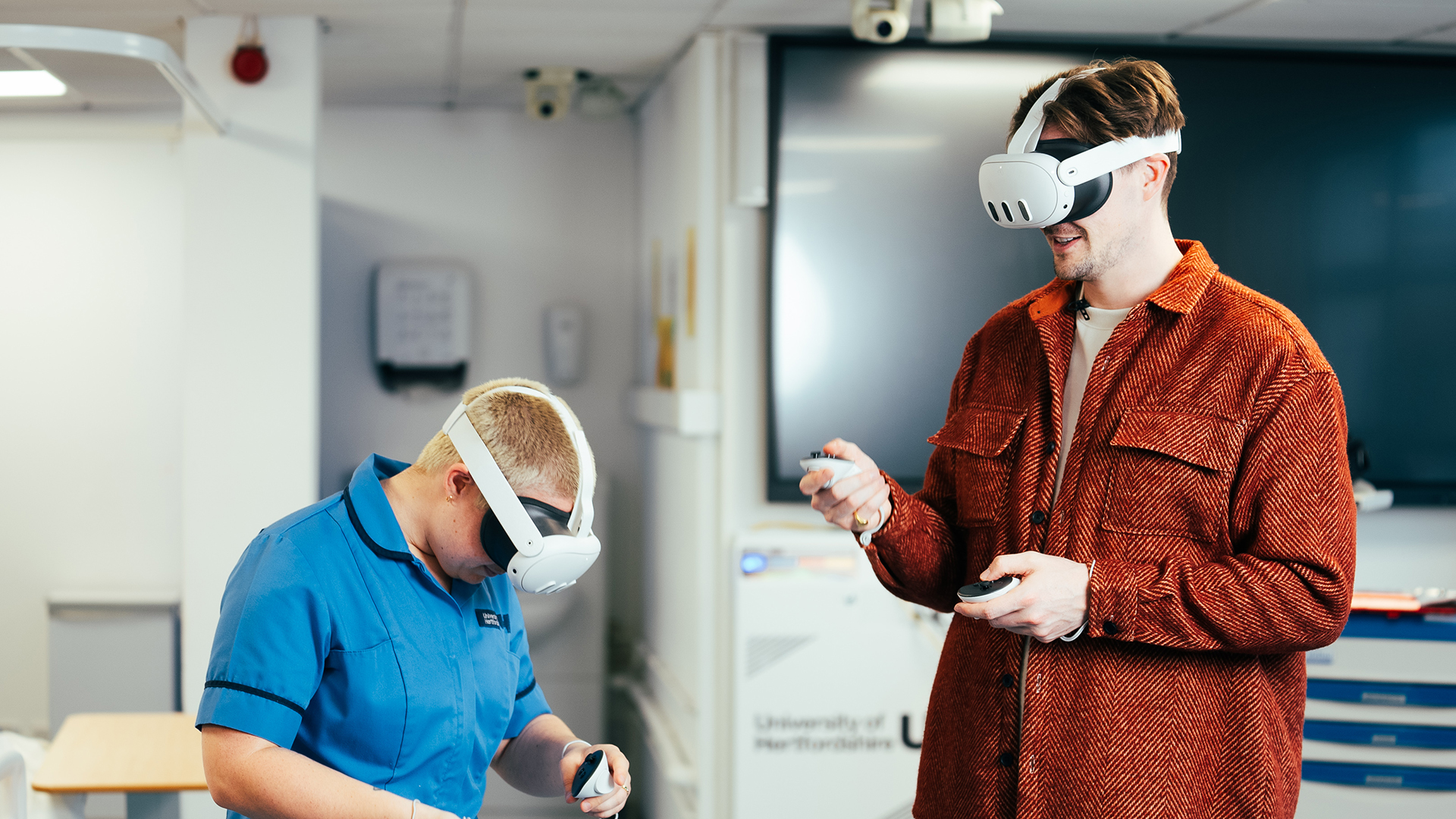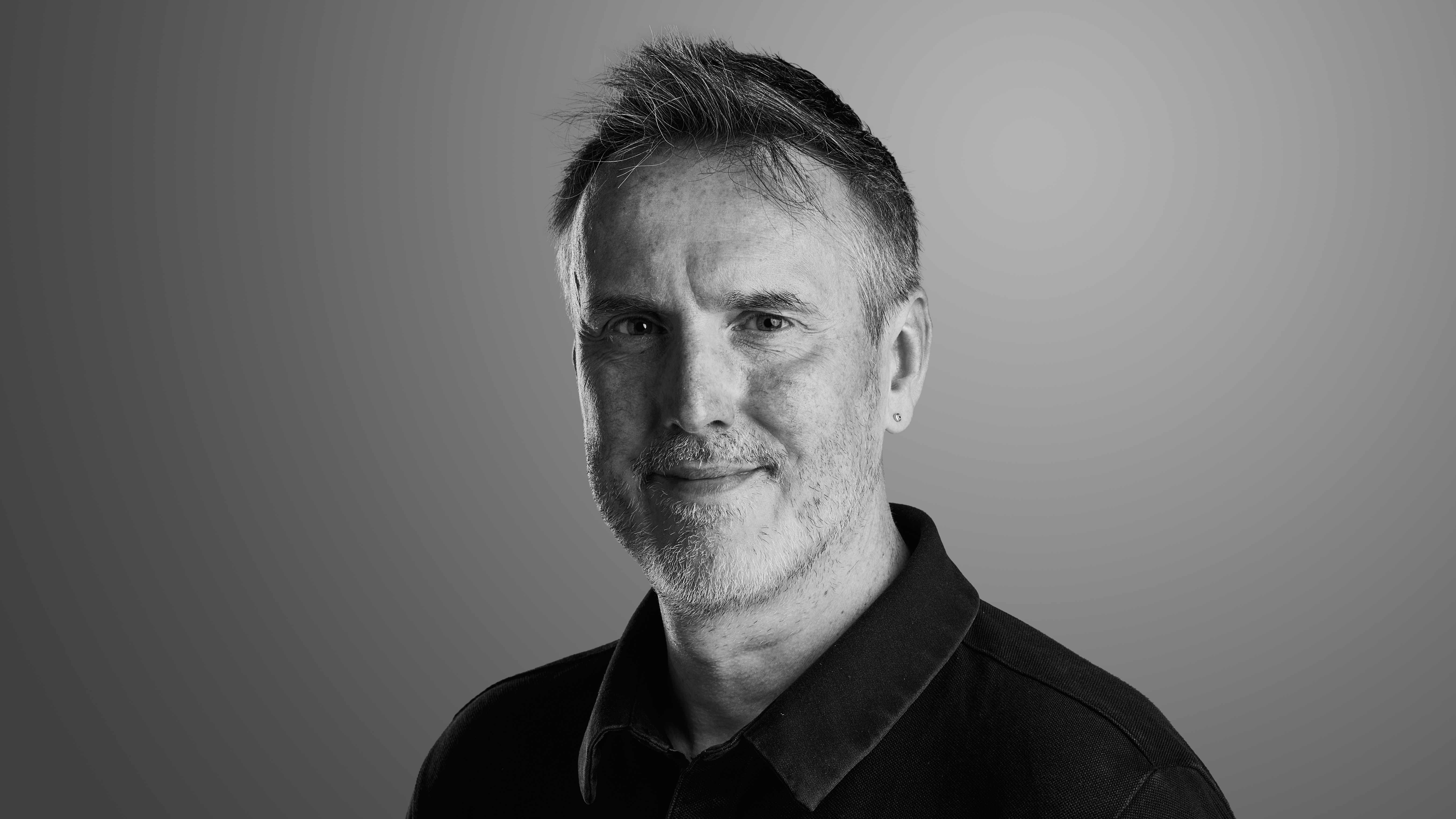Mixed reality is a game-changer for the NHS – how Meta Quest 3 training could help save lives
We speak to celebrity doctor Alex George about the use of MR headsets in healthcare training and beyond


Dr Alex George found fame on reality show Love Island several years ago, but not only is he a fully trained A&E doctor, he is now a the UK youth mental health ambassador – focusing primarily on mental fitness. He also knows a fair few things about technology and how it can help with wellness and general health.
That's why, when we got the opportunity to talk to him about the benefits of using mixed reality and VR headsets in the healthcare system, in particular the Meta Quest 3, we jumped at the chance.
Already a Meta Quest user, Dr George was recently invited to the University of Hertfordshire to see how Meta Quest 3 headsets were being used to train student doctors and nurses.
"I have to say that I've never been more impressed, tech wise," he said.
"I trained at Peninsula Medical School in Exeter and everything was done by watching lectures or performing scenarios on mannequins, and while mannequins have a role, it's not lifelike – you don't get the fear or the pressure you'll be under in that situation.
"Most of the work is book work, so when you start working as a doctor or nurse, that becomes your training ground. But with this you're able to practice in a very immersive way, and in an entirely safe space."

Dr George was keen to stress that there are other safe ways to train junior doctors today, which are tried and trusted, but mixed reality simulations can replicate real life scenarios without endangering patients in form.
Get all the latest news, reviews, deals and buying guides on gorgeous tech, home and active products from the T3 experts
"Practice does make perfect and practice in medicine, as within other fields, like being a pilot or whatever, is all about repeating processes, eliminating error and allowing space for safe failure so that you don't have it in the real scenario," he added.
"All of the students I spoke to said it was amazing. And they enjoyed it – it was fun. I wanted to carry on myself, and I've already got my medical degree."
How can mixed reality benefit the NHS?
Fun isn't a term often associated with working in the National Health Service today. There are plenty of reports that healthcare professionals in the NHS work long shifts in difficult circumstances, not least during the pandemic, and there are many contributory factors as to why 12% of nursing students in the UK leave the service before they have finished training. However, Dr George does believe that MR systems like the one created by Oxford Medical Simulation could help encourage them to remain.
"The more effective the training, the better. I'm not saying that MR is going to solve the issues that we're facing [in the NHS], but if you feel better prepared as a junior doctor or nurse and you've been able to practice scenarios over and over again, you feel more confident. And that has a wider implication and positive impact on training, and resourcing as well."

Ultimately, it comes down to offering training methods that can help prepare the next generation of healthcare professionals without putting them or anyone else in harms way. And is also relatively inexpensive in comparison with physical tools and equipment.
That will benefit us all.
"The better the training of the individual, the better the care provision."
Can Meta Quest 3 and mixed reality also benefit our general health?
As the UK youth mental health ambassador, Dr George also believes that a mixed reality headset like the Meta Quest 3 can be used to improve wellness for consumers in the home, too.
"I think there are potential benefits in MR in terms of mindfulness and mental health in general – for breath work, meditation, and so on. I think there are clear benefits there," he explained.
"I guess that what will be interesting, given the technology we're seeing in the space, is what's next?
"I think it's important as an industry that we can see some of the possibilities, because there's a huge opportunity in some of these things."
The former Love Island contestant and podcast host also illustrated ways he's used a Quest headset to help with his own mental fitness.
"I've used meditation and stuff on there. It's quite good for escapism. It's also good for learning and exercising," he revealed.
"It's just like anything that's new, I think it takes time for people to get used to it and adapt. It's like a new way of living."
And so, with its benefits in the home and hospital, it's clear Dr George is a fan of mixed reality in general, and the Meta Quest 3 headset specifically.
"Technology gets a bad rap for some things. Sometimes it deserves it, with social media, and so on. But I think that when we use tech for a positive thing, I think we should really recognise and celebrate that."

Rik is T3’s news editor, which means he looks after the news team and the up-to-the-minute coverage of all the hottest gadgets and products you’ll definitely want to read about. And, with more than 35 years of experience in tech and entertainment journalism, including editing and writing for numerous websites, magazines, and newspapers, he’s always got an eye on the next big thing.
Rik also has extensive knowledge of AV, TV streaming and smart home kit, plus just about everything to do with games since the late 80s. Prior to T3, he spent 13 years at Pocket-lint heading up its news team, and was a TV producer and presenter on such shows as Channel 4's GamesMaster, plus Sky's Games World, Game Over, and Virtual World of Sport.